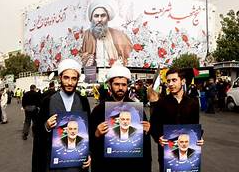The region remains trapped in a conflict with no clear resolution in sight.
Israel’s longstanding conflicts with Hezbollah and Hamas have spanned over four decades. Throughout this period, Israel has killed many key figures from both organizations, a trend that has continued, especially since October 2023. On July 30, Israel killed Fuad Shukur, a senior member of Hezbollah’s military council, in an airstrike in Beirut. Shukur had been involved in the group’s history, particularly in the 1982 bombing that killed 241 American and 54 French peacekeepers in Beirut.
His most recent role, according to Israeli sources, was facilitating the supply of missiles from Iran to Lebanon. Less than 12 hours later, a bomb, likely planted in advance, killed Ismail Haniyeh, the political leader of Hamas, and his bodyguard in Tehran. This occurred within the compound of Iran’s Revolutionary Guard Corps.
Earlier in the same month, a major strike in Gaza had taken out Mohammed Deif, the military commander responsible for the October 7 attacks. In March, Deif’s deputy, Marwan Issa, was also killed, and another high-ranking military figure, Saleh al-Arouri, was assassinated in January. These operations suggest that Israel has the ability to act with near impunity, as long as it can pinpoint its targets.
Despite these high-profile deaths, the broader conflict remains unchanged. The region is entrenched in a struggle with no apparent end, with each strike and assassination seemingly contributing little to resolving the underlying issues. The cycle of violence continues, leaving many to question whether targeting key leaders will ever lead to a lasting peace.
While Israel’s military continues to strike with precision, the broader strategic situation in Gaza and Lebanon remains largely unaffected by the deaths of individual leaders. The constant ebb and flow of violence have entrenched both sides into an ongoing conflict, with no clear path forward.
The assassination of figures like Haniyeh might provide short-term tactical advantages, but the deeper issue is a protracted regional struggle that no single action can resolve. Despite these high-profile killings, the prospects for peace appear distant, and the violence is unlikely to subside anytime soon.
As both sides continue to take lives in pursuit of their goals, it becomes increasingly clear that this conflict is not about individuals, but about broader power dynamics and entrenched hostilities that defy resolution through force alone.

